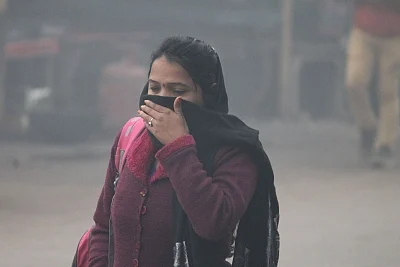New Delhi, Jan 29 (IANS) If India reduces particulate pollution by 25 per cent in five years, residents breathing the most polluted air in New Delhi and parts of Uttar Pradesh could live almost three years longer, a study said on Tuesday.
The study titled "The Potential Benefits of India's 'War Against Pollution' -- Longer Lives", was conducted by the Air Quality Life Index (AQLI), which translates particulate air pollution into its impact on life expectancy.
"The payoffs from the successful implementation of the National Clean Air Programme (NCAP) could be substantial with people in the most polluted areas like Delhi living almost three years longer," Michael Greenstone, who created the index along with his colleagues at the Energy Policy Institute at the University of Chicago (EPIC), said.
"For this reason, NCAP has the potential to become a historic and watershed moment in Indian environmental policy."
The AQLI study revealed that if India reduced particulate pollution by 25 per cent, people in Kanpur would also live 2.4 years longer and, in Kolkata for 1.1 years more.
On January 10, Union Environment Minister Harsh Vardhan launched the NCAP which aims to reduce particulate pollution by 20-30 per cent by 2024.
It began immediately through a combination of 102 city-specific pollution reduction plans and national initiatives.
The residents living in the 102 cities singled out by the NCAP for having higher pollution levels than the national average would add 1.4 years to their lives, the study said.
Developed by the University of Chicago's Milton Friedman Professor in Economics Michael Greenstone and his team at the Energy Policy Institute at the University of Chicago, the AQLI is rooted in recent research that quantifies the causal relationship between long-term human exposure to air pollution and life expectancy.
The index then combines this research with hyper-localized, global particulate measurements, yielding unprecedented insight into the true cost of particulate pollution in communities around the world.
--IANS
vg/ksk/bg
(This story was auto-published from a syndicated feed. No part of the story has been edited by The Quint.)
(At The Quint, we question everything. Play an active role in shaping our journalism by becoming a member today.)
